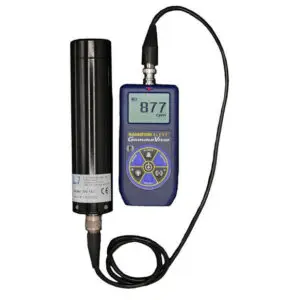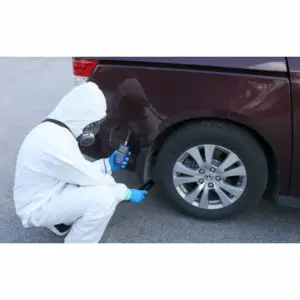Radiation Concerns in Precious Metals and Electronic Scrap
In the recycling and processing of precious metals and electronic scrap, one significant concern that often arises is the presence of radiation. This concern is not just theoretical; it is a practical issue that can have serious implications for safety, regulatory compliance, and

the economic viability of recycling operations.
Understanding the Sources of Radiation
Radiation in scrap metals can come from various sources:
Naturally Occurring Radioactive Materials (NORM): Metals such as zirconium, used in some electronic components, can contain radioactive isotopes. While the levels are generally low, they still require careful handling.
Contaminated Equipment: Electronic scrap, particularly from medical and industrial applications, may be contaminated with radioactive substances like cesium-137 or cobalt-60, used in medical diagnostics and industrial gauges.
Imported Scrap: Scrap metal imported from regions with higher natural radioactivity or industrial applications involving radioactive materials can introduce unexpected radiation risks into the recycling stream.
Consumer Goods: Occasionally, consumer electronics might inadvertently incorporate materials that contain radioactive components, thus entering the recycling system when these products reach the end of their life.
The Importance of Radiation Testing in Exporting Scrap Metal

From my experience as a partner with Metalex Metals Ltd., where we have been shipping containers and packages globally for over a decade, radiation testing has been a crucial part of our export procedures. Before any shipment, conducting a radiation test is standard practice. This is not only about ensuring safety but also about compliance and efficiency.
Radiation Detection Equipment
Investing in a radiation detection device, which typically costs between $1,000 and $2,000, is a wise decision for any company involved in the scrap metal industry. These devices are essential for:
- Ensuring Safety: Protecting the health of workers and the general public.
- Avoiding Regulatory Hassles: Many countries perform radiation checks at various checkpoints. Detecting radiation in a shipment can lead to substantial procedural delays, fines, or even rejection of the shipment.
The Cost of Non-Compliance
Failing to detect radiation in shipments can lead to more than just inconvenience. There are often significant fines and regulatory hurdles that can arise when radiation is detected at international borders. The cost of these complications far outweighs the initial investment in radiation detection equipment.
Conclusion
The potential for radiation in precious metals and electronic scrap is a serious consideration for recyclers. Implementing rigorous testing protocols, such as those we practiced at Metalex Metals Ltd., is crucial for ensuring that all exported materials meet global safety standards. This not only aids in maintaining a good business reputation but also ensures compliance with international safety and health regulations. For anyone in the recycling industry, understanding and managing radiation risks is essential for a successful operation.

The Application of Silver in Medical Uses
The Application of Silver in Medical Uses: From Historical Silverware to Modern Nanopowders Silver has been a prized metal for centuries, not only for its

Sterling Silver Sheets
. Parameters Affecting the Quality of Sterling Silver Sheets Sterling silver, an alloy primarily composed of 92.5% silver and 7.5% copper, is renowned for its

A Guide to Major Gold Exchanges Around the World
Where is Gold Traded? A Guide to Major Gold Exchanges Around the World Gold has been a cornerstone of finance and investment for centuries, valued

Metal Detector – Professional Gold and Silver Detector
Metal Detector for Adults – Professional Gold and Silver Detector with LCD Display, High Accuracy Waterproof Pinpoint 5 Modes, 10″ Coil Lightweight Metales Detectors

Essential Guide to Non-Destructive Testing for Precious Metal Authentication
BLOG #1 May -10-2024 Welcome to the inaugural post of “Precious Metals Mechanics by Ami Gur.” In this series, we embark on a journey

About The Blog
Welcome to “Precious Metals Mechanics—by Ami Gur.” This blog is designed to serve as your expert guide through the intricate world of precious metals. Here,

